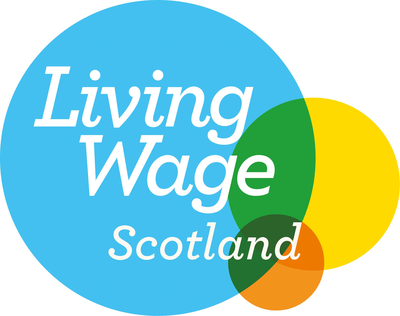By Gail Irvine, Living Wage Scotland Manager
Three years on since it was first promised, the UK Government’s Employment Bill appears to have been shelved. In the absence of legislation aimed at tackling insecure work, the campaign for ‘Living Hours’ is more important than ever.
The Employment Bill was first announced in the 2019 Queen’s Speech, which sets out the UK Government’s legislative programme for the year. The legislation was due to offer important new protections to tackle insecurity, protect and enhance workers’ rights, and promote flexibility at work. The purpose of the Bill as set out in 2019 was to promote ‘the right balance between the flexibility that the economy needs and the security that workers deserve,’ and to ‘build on existing employment law with measures that protect those in low-paid work and the gig economy.’ Among the proposals explored in pre-legislative consultation was whether minimum notice of shifts, and the right to flexible working as well as a contract that reflects actual hours worked could be enshrined or enhanced in law.
It could hardly be argued that the importance of these issues has gone away. On the contrary: from the spotlight shone on the scale of insecure work facing UK workers, to the recent P&O Ferries scandal, to the increased numbers of people not working work due to ill health, updating employment law to tackle insecurity and promote flexibility is long overdue. But unfortunately it is not being seen as a legislative priority.
Thankfully, more and more employers are aware of the negative impact of insecure work. Since the pandemic – and only reinforced by worker shortages in many key worker industries – many employers have a stronger sense of how integral it is to have a resilient, engaged and motivated workforce. Many of the employers that have joined the Living Wage movement in the last two years tell us they are acutely aware of the pressures their staff have been working under during the pandemic. They see becoming Living Wage accredited as a public signal that they value their people.
Living Hours is the other side of the coin. Living Hours recognition is awarded to employers who take steps to provide greater security of hours and contracts to their staff, alongside payment of the real Living Wage. Employers who sign up to Living Hours commit to providing contracts to staff that reflect actual hours worked and of no less than sixteen hours a week (unless the employee requests fewer). They also commit to providing a minimum four week notice of worker shifts, with payment required if the shift is cancelled within this notice period. Provisions exist for circumstances which genuinely demand short-notice shift changes, such as cover for staff illness.
These measures were developed over an 18-month period of consultation with workers, Living Wage employers, trade unions and labour market experts. Launched in 2019 with abrdn, 1st Alliance Credit Union, and SSE among the first Scotland trailblazer employers, the movement is still at early stages – but is growing strongly. We now have eight employers in Scotland and 19 employers UK wide – from small to large employers and from across the private and third sector.
While the right employment legislation would help immensely by levelling the employment playing field, action from employers in the here and now shows real leadership and is delivering tangible benefits for workers. We are pleased that more and more employers are joining Living Hours and reaping the benefits of a more motivated workforce. If you are interested in finding out more about how Living Hours could work in your business, you can visit www.scottishlivingwage.org/living-hours/ or get in touch directly with our Living Hours Project Coordinator Christine McCaig via Christine.mccaig@povertyalliance.org
